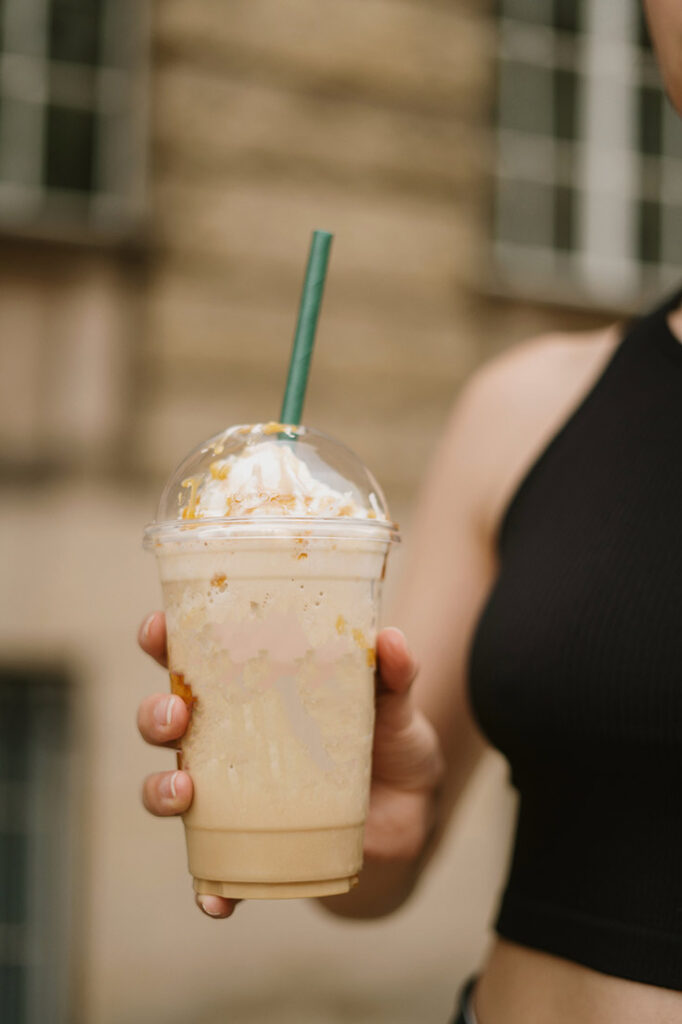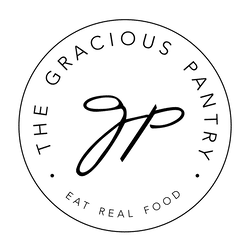Healthy Alternatives To Sugar In Coffee
If you are looking to cut down on processed foods and need healthy alternatives to sugar in coffee, I’ve gotcha covered.
For most of the past fourteen years, I have been focused on cutting down on processed foods as well as limiting my sugar intake in my diet. The American food supply leaves a lot to be desired. In fact, a healthy chunk of the allowed ingredients in our processed foods are actually illegal in other countries! It’s a head-scratcher to be sure. But one thing is for sure, we are on our own if we truly want to eat better.

With coffee shop drive-throughs on every corner, it’s so simple to swing by on your way to work and grab a coffee. But by the time you get done adding a pump of this and a shot of that only to top it off with whipped cream, you’ve got yourself a dose of sugar in a cup that most people in other countries don’t consume in an entire week!
The maximum grams of sugar the average person should get in a day is 24 (or 100 calories). Most coffee drinks, especially the blended ones, will far surpass that amount. Eating more sugar than your body can use leads to weight gain and health issues such as diabetes.
So What Is A Healthy Replacement For Sugar In Coffee?
Believe it or not, some sweeteners are much easier on the body and even contain good-for-you nutrients such as potassium, calcium, magnesium, zinc, and even fiber! Let’s dive into some healthier options for sweetening those coffee beans.
Types Of Sugars
The truth is, the body doesn’t know much difference between different types of sugar. Once it hits your bloodstream, sugar is sugar, no matter what type you used. But it’s important to understand how sugar operates in the body and the different ways we can approach sweetening our coffee to get different results, and even some health benefits. So here are a few different types of table sugar substitute and why you may want to consider using them for your coffee instead of the processed white stuff.
Natural Liquid Sweeteners That Are Healthy Alternatives To Sugar In Coffee
While each type has its own flavor profile, all of these can be quite tasty in coffee.
- Honey
- Maple syrup
- Brown rice syrup
- Coconut syrup

Honey
Honey is a natural sweetener produced by honeybees. It is minimally processed, if at all, and can also be purchased “raw”. (Straight from the honeycomb). While it will affect your body in much the same way sugar will, it’s important to note that honey has many antioxidants, vitamins, and minerals that regular table sugar does not contain. It also is lower on the glycemic index, with sugar being 65 and honey being 58 on the index scale.
Maple Syrup
Maple syrup is another natural sweetener that, while processed, is still a very natural product. It is made by boiling the sap of the maple tree until it turns into syrup. There is more to it than that, but for simplicity’s sake, we’ll stick with that explanation. It is slightly lower than honey on the glycemic index at 54. But it’s worth mentioning that it doesn’t taste as sweet as honey. So you may end up using more of this milder sweetener to get the level of sweetness you prefer.
Brown Rice Syrup
Brown rice syrup is made by exposing brown rice to enzymes that break it down into syrup. It is a natural product that is very thick and sticky. But it actually does a pretty good job of sweetening coffee. And like honey, it has many nutrients to offer. That being said, it is a whopping 98 on the glycemic index. So tread with caution.
Coconut Nectar Syrup
Coconut nectar syrup is made from nectar found in the flowers of the coconut palm tree. The only processing it undergoes is evaporation to thicken it into syrup. So it retains many good nutrients and is only 35 on the glycemic index!

Unprocessed Granular Sweeteners That Are Healthy Alternatives To Sugar In Coffee
These are closer to regular table sugar than liquid sweeteners. But not all of them are as sweet.
Sucanat
This is the brand name of a sweetener that is simply evaporated cane juice. Like sugar, it comes from the sugar cane but is not heavily processed like regular table sugar. However, unlike regular sugar, it has a glycemic index number of 55. It also contains more nutrients than regular, processed sugar. While 1 teaspoon is about 16 calories, it is not as sweet as regular sugar, so you may need to add a bit more to get the desired effect.
Monk Fruit
This is a small fruit that comes from southern China. It is made through an extraction process which keeps it pretty natural. Monk fruit has actually been used for certain health issues in past centuries. It is extracted and dried to create a granular sweetener. It is a zero on the glycemic index, so it’s a great option for those watching their blood glucose, especially considering that it tastes many times sweeter than regular sugar. So you can use much less of it to get the desired level of sweetness.
Coconut Sugar
Coconut sugar actually comes from the sap of the tree, not from the coconuts themselves. It is simply boiled into syrup (like maple syrup) and is then dried into crystals. It’s a 54 on the glycemic index but gives you far more nutrients than table sugar.
Maple Sugar
Maple sugar is made by boiling/evaporating maple syrup until only granules are left. It is another naturally nutrient-dense sweetener. It also comes in a little bit lower on the glycemic index at 52.

Zero Calorie Sweeteners That Are Healthy Alternatives To Sugar In Coffee
If you are looking to sweeten your coffee without adding calories, these may be a healthy option for you.
Stevia
Stevia is a zero-calorie sweetener that isn’t sugar at all. It is a plant leaf that “tricks” your taste buds into thinking you are tasting something sweet. It can be purchased in powdered or liquid form. Both forms are minimally processed and include steeping the leaves to get the sweetness from them. It is a zero on the glycemic index.
Note: Some people experience bitterness or an aftertaste from stevia. I used to be one of those people. But with continued use, it went away.
Monk Fruit Extract
As mentioned above, monk fruit is a fruit from China. But it is also a zero-calorie sweetener. And just like stevia, it is a zero on the glycemic index. And like stevia, it comes in both powdered and liquid forms.

Sugar Alcohols – Not Generally Considered As Healthy Alternatives To Sugar In Coffee
Both of these sweeteners are processed sweeteners. So they are not necessarily the best healthy alternatives to sugar in coffee. But they are worth a mention here for those who have to closely monitor their blood sugar levels. While they are not necessarily the healthiest products on the market (the jury is still out on sugar alcohols), many people use them (including myself) as a sugar alternative to enjoy sweet things without the glycemic impact.
Xylitol
Xylitol is a 7 on the glycemic index. It is also often added to toothpaste because it helps fight tooth decay. And while it is not a zero on the glycemic index like some sweeteners, it’s definitely low down on the scale. Because I don’t fully understand the vocabulary in the description of the production process, I will leave you with a quote from ScienceDirect.com.
“Xylitol is currently produced by chemical catalytic processes mainly from xylose from hemicellulosic hydrolysates of corncobs and hardwoods.“
ScienceDirect.com
Erythritol
Erythritol is different from xylitol, although they look almost exactly the same. It is made from corn using fermentation and enzymes. It is a zero on the glycemic index. And while it does not dissolve as easily as xylitol, it is still an option for many.
Important!
Sugar alcohols are highly toxic to animals. Animals cannot metabolize it like humans can. So it will drop their blood sugar to very dangerous levels. So if you have animals in the house, either be very careful to not spill any where they can get any, or opt for a safer sweetener.
Also, excess consumption of sugar alcohols can cause digestive issues, bloating, and diarrhea. So use them as healthy alternatives to sugar in coffee in small amounts to start with. Every person will have a different level of tolerance. So you’ll have to experiment a bit at first.

Sweeteners Not Included In This List And Why
Healthy alternatives to sugar in coffee may seem abundant. But there are some natural sweeteners that some folks will want to avoid. They are:
- Agave nectar – (Also known as agave syrup) While agave is technically a natural sweetener that comes from the agave plant, it is actually very highly processed. That being said, it is a 17 on the glycemic index. So the choice is yours.
- Molasses – While molasses is a good sweetener, in my experience, it tastes terrible in coffee. Although, I have heard of some people using blackstrap molasses in their coffee and enjoying it. So again, the choice is yours.
Natural Ways To Flavor Coffee
Sweetening your coffee isn’t the only way to enjoy it. Here are some flavoring ideas that are natural and healthy.
- Ground cinnamon
- Ground cardamom
- Butter (blend into warm coffee)
- Coconut oil (blend into warm coffee)
- Unsweetened cocoa powder
- Allspice
- Ginger
- Cloves
- Nutmeg
- Vanilla extract
Artificial Sweeteners To Avoid
- Sucralose
- Aspartame
- Saccharin
- Nutrasweet
- Equal
- Splenda
- Sorbitol
- Twin Sweet
- Sweet N’ Low
- High fructose corn syrup
- Corn syrup
So as you can see, there is a world of natural sugar alternatives out there. The only question you have to ask yourself is, which one will work best for you? While this isn’t always an easy question to answer, the good news is that many coffee shops now offer more natural alternatives.
But a word of caution. Those little packets of seemingly natural sweetener can often be mixed with other not-so-natural ingredients. So make sure you are reading the ingredient list to see if that little packet is really what you’re looking for. Very often, I end up just buying the packets I like at the store and then carrying a few around in my purse or car. It just makes life easier and I know I’m doing something good for myself.
Homemade Coffee Drinks That Use Healthy Alternatives To Sugar In Coffee
Want to try your hand at making your own coffee drinks at home? They are cheaper, healthier, and just as portable in a reusable cup! Here are a few to try:
- Peppermint Latte
- Pumpkin Spice Latte
- Apple Pie Spice Latte
- Dalgona Coffee
- Pumpkin Spice Chai Latte
- Orange Maple Frappuccino
Let me know in a comment below what your favorite healthy alternatives to sugar in coffee are and why!














Very good run down on alternative sweeteners. Thank you for the list!
Ellen – I’m so happy you found it useful! 😀